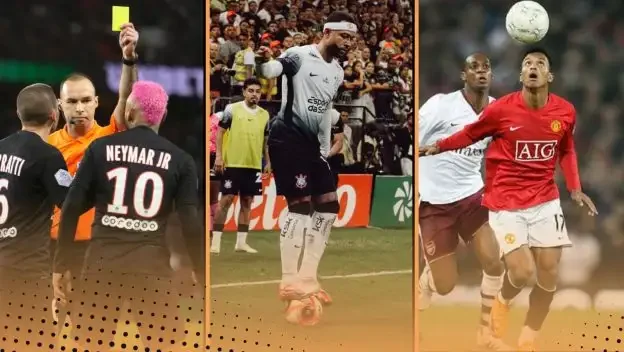
The Art Of Disrespect: How Daring Skills Sparked A Football Culture Clash In Brazil
In a spectacle fit for highlight reels and controversy alike, Memphis Depay's audacious trickery in the Campeonato Paulista final has reignited an age-old debate in football: when does showmanship cross the line into disrespect? Following Depay’s provocative move, the Brazilian Football Confederation (CBF) swiftly deemed such flamboyance punishable, sparking widespread discussion about flair, culture, and the spirit of 'the beautiful game'.
The furore began during stoppage time when Depay, now a Corinthians talisman, stunned fans by standing on the ball with both feet near the corner flag — a gesture reminiscent of classic Brazilian street football but one that infuriated Palmeiras players. The moment ignited a heated scuffle that saw multiple red cards and over eighteen minutes of stoppage time. More consequentially, it prompted the CBF to circulate an unprecedented directive: any future repetition of this move would be met with an indirect free-kick and a yellow card for 'lack of respect'.
"This involves a player stepping on the ball with both feet, with the intention of provoking the opposing team," the CBF’s official statement clarified, citing 'widespread disruptions' and risk of injury as rationale. Yet critics, including Depay himself, see something else entirely — the suffocation of expressive football deeply intertwined with Brazil’s identity.
Memphis did not hide his displeasure, lamenting on social media, "I went to Brazil to experience Jogo Bonito first-hand, but now they ban standing on the ball? The joy and passion shouldn't be limited... Let's focus on rules that improve the sport instead of these silly announcements." His sentiment was echoed by Santos superstar Neymar, who wryly observed on Instagram, "Football is getting more and more boring." Their criticisms underline how the ban is more than a disciplinary issue; it strikes at the cultural heart of Brazilian football.
Ironically, many of the game’s greatest icons have built their legend on such audacious skills, which critics have often labelled as disrespectful — but fans celebrate as pure genius.
Take Neymar himself, renowned (and sometimes reviled) for humiliating defenders with rainbow flicks and relentless nutmegs. During his Paris Saint-Germain days, even referees cautioned him to tone it down, once booking him simply for dazzling a 10-man Montpellier side with a rainbow flick. Then there’s Cristiano Ronaldo: early in his Manchester United career, his flashy stepovers earned the ire of senior teammates like Ruud Van Nistelrooy who quipped, "he should be in the circus, not on the pitch." Wayne Rooney once clattered into him in frustration, underscoring how perceived ridicule can boil over in heated clashes.
Others have turned cheeky flair into folklore. Manchester United’s Nani famously performed a 'seal dribble' against Arsenal, bouncing the ball on his head mid-sprint, fuelling both laughter and heated exchanges. Yet that trick is forever linked with Brazil’s Kerlon, who elevated the move into a whimsical art form even as it provoked brutal fouls from annoyed opponents. Kerlon himself reflected, "Even my own teammates thought I shouldn’t do it. They said I was asking for trouble."

This line between brilliance and disrespect is as old as the sport — from Diego Maradona nutmegging in testimonial matches, to Russian winger Andrei Kanchelskis saluting after standing on the ball in jest. Such moments blend artistry and provocation, celebrating technical mastery while testing opponents' tempers.
Depay’s controversial stunt revives an essential question: should football prioritise decorum or preserve a space for playful expression and cultural identity? Is protecting players’ feelings worth suppressing the ethos of Jogo Bonito that Brazil itself once championed? Or, as Neymar and Depay argue, does suffocating flair merely risk making football "more and more boring"?
This debate won't be settled soon. But it remains clear: the soul of football beats strongest where skill dazzles and emotions run high, even when the line between respect and ridicule becomes beautifully blurred.
What do you think? Has football lost some of its sparkle by policing such flamboyance, or are bans like these essential to preserve sportsmanship? Share your thoughts and join the conversation below.